Find Help
More Items From Ergsy search
-

Pelvic health: prolapse
Relevance: 100%
-

Pelvic health: prolapse
Relevance: 100%
-

Your pelvic health matters: insights from NHS clinicians
Relevance: 85%
-

Pelvic health: Urge Incontinence
Relevance: 85%
-

Pelvic health: stress urinary incontinence
Relevance: 83%
-

Understanding Your Sexual Health - Pelvic Inflammatory Disease
Relevance: 76%
-
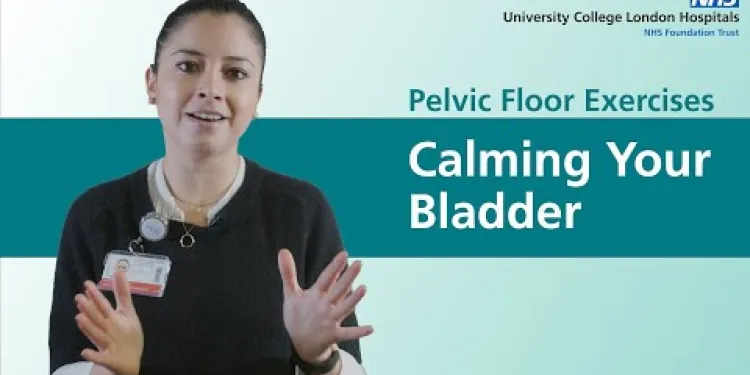
Pelvic Floor Exercises - Using Your Pelvic Floor to Calm Down Your Bladder
Relevance: 72%
-
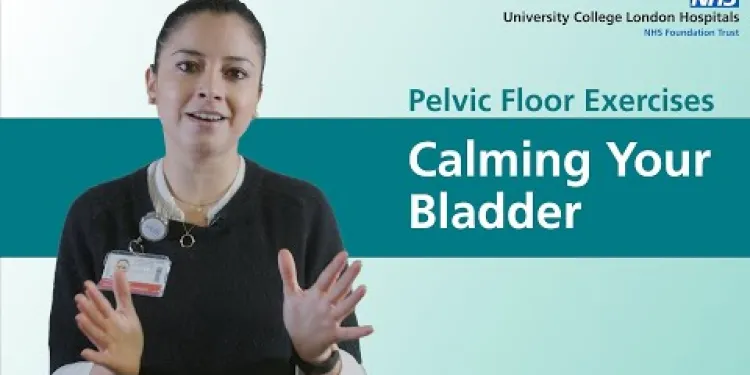
Pelvic Floor Exercises - Using Your Pelvic Floor to Calm Down Your Bladder
Relevance: 72%
-
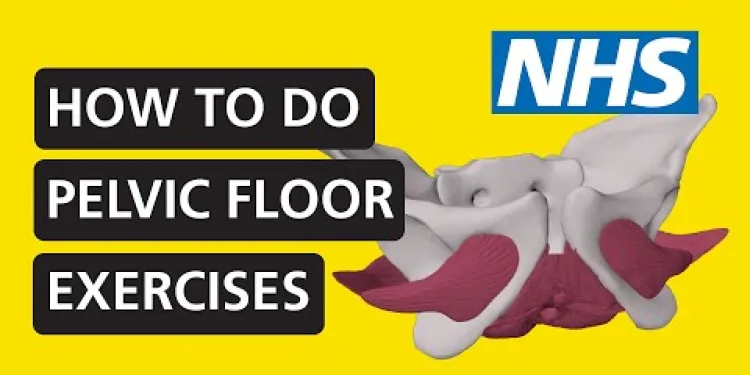
How to do pelvic floor exercises | NHS
Relevance: 70%
-

The Pelvic Floor Muscles - Developing an Exercise Programme
Relevance: 68%
-

BSL Pelvic inflammatory disease (PID)
Relevance: 64%
-

Pelvic Girdle Pain Advice Class
Relevance: 63%
-
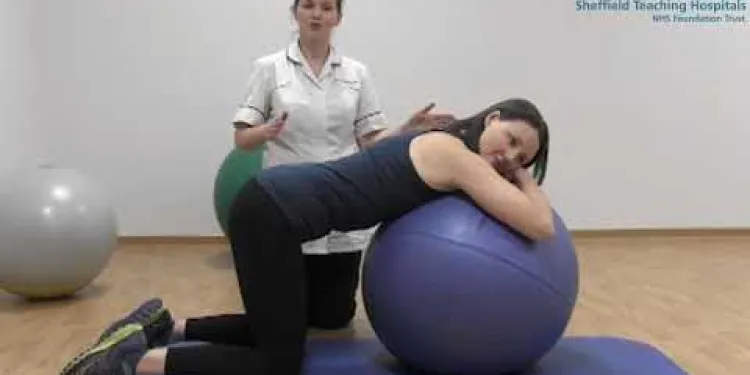
Mat and gym ball exercises with pregnancy related Pelvic Girdle Pain
Relevance: 54%
-

Incontinence and Prolapse - Physiotherapy Advice
Relevance: 36%
-

Understanding Your Sexual Health - Gonorrhoea
Relevance: 36%
-

Incontinence and Prolapse - Physiotherapy Advice
Relevance: 36%
-

Prolapse Management
Relevance: 33%
-

Prolapse Types and Tips
Relevance: 33%
-

What is gut health?
Relevance: 31%
-

Health and safety responsibilities
Relevance: 30%
-

Can gut health affect mental health as one ages?
Relevance: 30%
-

Is health linked to aging?
Relevance: 30%
-

Harshi’s learning disability annual health check and health action plan
Relevance: 30%
-

Is fibre good for health?
Relevance: 29%
-

Mental Health Support Services in the UK
Relevance: 29%
-

Mental Health Support Resources in the UK
Relevance: 29%
-

Understanding Mental Health in Children
Relevance: 29%
-
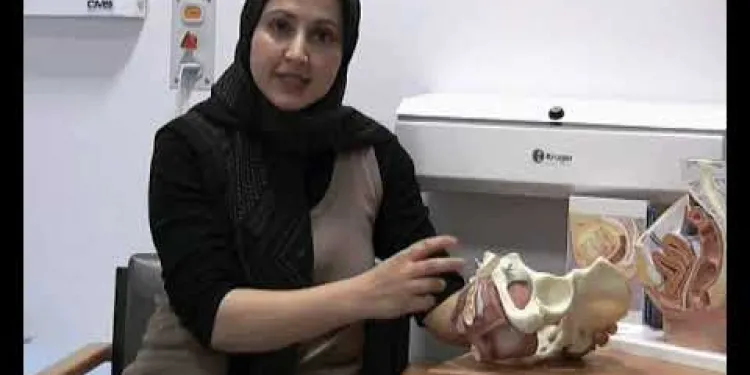
Physiotherapy Assessment of Urinary Incontinence
Relevance: 29%
-

Mental Health Resources for Families
Relevance: 29%
-

What is a public health funeral?
Relevance: 29%
-

Postpartum Health: Mother and Baby
Relevance: 28%
-

Health Officials Warn Against 'DIY' Health Remedies Amid Supply Chain Issues
Relevance: 27%
-

Are there any long-term effects of gonorrhoea?
Relevance: 27%
-

Why is fiber important for health?
Relevance: 27%
-

What is health related anxiety?
Relevance: 27%
-

Is gut health linked to the aging process?
Relevance: 27%
-

Accessing Mental Health Support Resources in the UK
Relevance: 27%
-

Advancements in Mental Health Resources for Families
Relevance: 27%
-

What is the impact of obesity on mental health?
Relevance: 27%
-

Are there specific fats that support heart health?
Relevance: 27%
Your Pelvic Health Matters: Insights from NHS Clinicians
Understanding Pelvic Health
Pelvic health is a crucial aspect of overall well-being that is often overlooked. The pelvic region contains vital organs, including the bladder, uterus, and rectum. It is supported by pelvic floor muscles, which play an important role in maintaining bodily functions such as urination, bowel control, and sexual function. Understanding the importance of pelvic health and its impact on quality of life is essential for both men and women in the United Kingdom.
Common Pelvic Health Issues
NHS clinicians have identified several common pelvic health issues affecting a significant portion of the population. These include urinary incontinence, pelvic organ prolapse, and chronic pelvic pain. Urinary incontinence affects millions in the UK, with many believing it to be a normal part of aging. However, NHS experts emphasize that these conditions are treatable and not something individuals have to live with indefinitely.
Preventative Measures and Treatments
Prevention and early treatment are key to maintaining pelvic health. NHS clinicians recommend regular pelvic floor exercises, also known as Kegel exercises, to strengthen muscles and reduce the risk of incontinence and prolapse. Additionally, maintaining a healthy lifestyle through a balanced diet and regular physical activity can significantly impact pelvic health. For those already experiencing issues, the NHS provides a range of treatments including physical therapy, medication, and, in some cases, surgery.
Why Your Pelvic Health Matters
Addressing pelvic health is not only about addressing physical symptoms but also about improving mental health and quality of life. Conditions like urinary incontinence can significantly impact confidence and social interaction. The NHS encourages individuals to speak openly about pelvic health issues with their healthcare providers. By prioritizing pelvic health, individuals in the UK can enjoy a more active, confident, and fulfilling life.
Your Pelvic Health Matters: Insights from NHS Clinicians
Understanding Pelvic Health
Your pelvic health is very important for your well-being. The pelvic area has important parts of the body like the bladder, uterus, and rectum. It is supported by pelvic floor muscles. These muscles help you pee, have bowel movements, and also play a role in sexual health. Knowing about pelvic health is important for both men and women in the UK.
Common Pelvic Health Issues
NHS doctors have found some common pelvic health problems. These include trouble holding pee (urinary incontinence), when organs fall out of place (pelvic organ prolapse), and long-lasting pelvic pain. Many people in the UK have these issues. Some think it's just part of getting older, but NHS doctors say these problems can be treated.
Preventative Measures and Treatments
It is important to take care of your pelvic health early on. NHS doctors recommend doing exercises called Kegel exercises. These help make your pelvic muscles strong and can help stop problems like incontinence and prolapse. Eating healthy food and staying active is also good for your pelvic health. If you already have problems, the NHS can help with different treatments like physical therapy, medicines, and sometimes surgery.
Why Your Pelvic Health Matters
Taking care of your pelvic health helps both your body and mind feel better. Problems like urinary incontinence can make people feel less confident and affect their social life. The NHS advises talking about these issues with your doctor. By looking after your pelvic health, you can feel more active, confident, and enjoy life more fully in the UK.
Frequently Asked Questions
What is pelvic health and why is it important?
Pelvic health refers to the well-being of the pelvic region, including the bladder, bowel, and reproductive organs. It's important because it affects core bodily functions such as urination, sexual health, and continence.
What are common signs of pelvic floor issues?
Common signs include incontinence, pelvic pain, heaviness or bulging in the pelvic area, and pain during intercourse. If you experience these symptoms, consult a healthcare professional.
How can I strengthen my pelvic floor muscles?
Pelvic floor exercises, also known as Kegel exercises, can help. These involve tightening and holding the muscles that stop the flow of urine. Regular practice is key to strengthening these muscles.
Are pelvic floor issues common during pregnancy?
Yes, pelvic floor issues are quite common during and after pregnancy due to the physical changes and stress placed on the pelvic region. Exercises and pelvic floor physiotherapy can help manage these issues.
Can men experience pelvic floor problems?
Yes, men can also experience pelvic floor issues, although it's less discussed. Symptoms can include urinary incontinence, erectile dysfunction, and pelvic pain.
What treatments are available for pelvic floor dysfunction?
Treatments can include pelvic floor exercises, physiotherapy, medication, and in some cases, surgery. Consultation with a healthcare provider like a GP or a pelvic health physiotherapist is essential for a tailored treatment plan.
When should I see a doctor about pelvic floor issues?
If you notice persistent symptoms such as incontinence, pelvic pain, or discomfort that affects your daily life, it's important to consult a GP or pelvic health specialist.
Can surgery help with pelvic organ prolapse?
Surgery can be an option for pelvic organ prolapse, especially if symptoms are severe. However, it's usually considered after other treatments, like physiotherapy, have been tried.
How does menopause affect pelvic health?
Menopause can weaken pelvic floor muscles due to hormonal changes, increasing the risk of pelvic floor disorders. Regular pelvic floor exercises can help mitigate these effects.
What lifestyle changes can improve pelvic health?
Maintaining a healthy weight, quitting smoking, avoiding heavy lifting, managing chronic coughing, and incorporating regular pelvic exercises can all improve pelvic health.
Is urinary incontinence a normal part of aging?
While it becomes more common with age, urinary incontinence is not considered a normal part of aging and can often be treated or managed with the right approach.
Are there devices that can help with pelvic floor exercises?
Yes, there are many devices available that provide biofeedback or resistance to help improve the effectiveness of pelvic floor exercises. It's best to discuss these options with a healthcare provider.
Can diet affect pelvic health?
Yes, a diet high in fiber can help maintain good bowel health, avoiding constipation, which can strain the pelvic floor. Staying hydrated and managing diet-related weight are also important.
How long does it take to see improvements from pelvic floor exercises?
With consistent practice, many people notice improvements within a few weeks to a few months. Personal results can vary depending on the severity of the issue and adherence to exercise routines.
What is a pelvic health physiotherapist?
A pelvic health physiotherapist is a specialist who can assess and treat a range of pelvic floor disorders using exercises, manual therapy, and education to improve or restore muscle function.
What is Pelvic Health and Why Does it Matter?
Pelvic health is about keeping the part of your body called the pelvis healthy. The pelvis is the area below your belly button and between your hips.
Good pelvic health helps you go to the toilet, have a baby, and do other things without pain. It is important to keep this area strong and healthy.
To help with pelvic health, you can do exercises like "squeezing" muscles. You can also talk to a doctor or a nurse if you have questions.
Pelvic health is about keeping the area around your hips healthy. It includes the bladder, bowel, and parts that help with having babies. Good pelvic health is important because it helps your body go to the bathroom, have a healthy sex life, and stay dry.
What are common signs of pelvic floor issues?
A pelvic floor problem can make it hard to control when you go to the toilet.
Here are some signs:
- Needing to go to the toilet a lot
- Leaking pee or poop
- Hard to start peeing or to empty your bladder
- Feeling like something is falling out of your body
- Having trouble with poo (pooping)
- Pain in your lower belly
- Pain when you go to the toilet
If you think you have these signs, you can:
- Ask a doctor or nurse for help
- Do special exercises to make your muscles stronger
Here are some signs to look out for: Trouble holding in pee, pain in your lower tummy, feeling like something is heavy or sticking out down there, and pain when you have sex. If you feel any of these, talk to a doctor.
How can I make my pelvic floor muscles stronger?
To make your pelvic floor muscles stronger, you can try these exercises:
- Kegels: Pretend you are stopping a wee in the middle. Squeeze the muscles, hold for a few seconds, then relax. Try to do this 10 times in a row.
- Squats: Stand with your feet apart, bend your knees, and lower your bottom like you are sitting. Stand up again. Repeat 10 times.
- Bridge: Lie on your back with your feet flat and knees bent. Lift your hips up to make a bridge with your body. Hold for a few seconds, then lower down slowly.
Do these exercises every day to help your muscles get stronger.
Try using a reminder or alarm to help you remember to do the exercises.
Doing special exercises can make your muscles stronger. These exercises are called "Kegel exercises" or "pelvic floor exercises." They help the muscles that stop pee from coming out. To make these muscles strong, you need to do the exercises a lot.
Do many pregnant women have pelvic floor problems?
Many people have problems with their pelvic muscles when they are pregnant or after the baby comes. This happens because the body changes a lot and puts pressure on the pelvic area. Doing exercises and getting help from a special therapist can make things better.
Can men have problems with their pelvic floor?
Yes, men can have pelvic floor problems.
The pelvic floor is a group of muscles in your lower belly. These muscles help you control when you go to the toilet.
If these muscles are weak or hurt, they may not work well. This can cause problems like needing to pee a lot or leaking pee.
Here are some ways to help:
- Pelvic exercises: These help to make the muscles stronger.
- Talk to a doctor: They can give advice and treatment.
- Use diagrams: These can show where the muscles are.
- Watch a video: This can show how to do exercises.
Remember, it is okay to ask for help if you have any problems.
Yes, men can have problems with their pelvic floor too, even though people don't talk about it much. Signs of this can be trouble holding pee, problems with erections, and pain in the pelvic area.
What can help if you have problems with your pelvic floor?
If you have trouble with your pelvic floor, there are things that can help. Here are some ideas:
- Exercise: Doing special exercises can make the pelvic floor muscles stronger. These are often called Kegel exercises.
- Physical Therapy: A therapist can help you learn how to control and strengthen these muscles.
- Biofeedback: This is a way to see how your muscles are working on a screen. It can help you learn how to use them better.
- Medicine: Sometimes doctors can give you medicine to help relax your muscles.
- Surgery: In some cases, doctors might suggest an operation to help fix the problem.
It is important to talk to a doctor. They can help you decide what is best for you.
There are different ways to help you feel better. You might do special exercises for your tummy and bottom muscles, see a doctor who helps with movements, take medicine, or sometimes have an operation. It's important to talk to a doctor or a health helper to find the best way for you.
When should I visit a doctor about pelvic floor problems?
If you notice any problems with your pelvic floor, it is a good idea to talk to a doctor. Here are some signs that you should see a doctor:
- You have trouble holding in your pee.
- You feel pain in your lower tummy area.
- You have trouble going to the toilet.
- You feel pressure in your lower tummy.
- You notice anything unusual or different down there.
Talking to a doctor can help you feel better. You can also try talking to a family member or friend to feel more comfortable. Remember, it's okay to ask for help.
If you have problems like wetting yourself, tummy pain, or feeling uncomfortable every day, you should talk to your doctor or someone who knows about pelvic health.
Can surgery help with fallen organs in the pelvis?
Surgery can help fix organs in the lower belly if they fall out of place. A doctor can do an operation to help lift and hold the organs where they should be. This can make you feel better and stop things from getting worse.
It is important to talk to a doctor to see if surgery is the best choice for you.
You can use pictures, videos, or ask someone to explain it to you if it's hard to understand. You can also ask a friend or family member to help you ask the doctor questions.
Surgery can help when pelvic organs slip down. This is called prolapse. Doctors think about surgery if the problem is bad. But they usually try other things first, like special exercises.
What happens to your pelvic health during menopause?
Menopause is a time in a woman's life when her body changes. It can affect her pelvic health.
Here are some things that can happen:
- Your body makes less estrogen. Estrogen is a hormone that helps keep your body healthy.
- With less estrogen, your pelvic muscles might become weaker.
- You might feel dryness or discomfort in your pelvic area.
- You may need to go to the bathroom more often.
Here are some ways to help:
- Talk to your doctor about how you feel.
- Do pelvic exercises to make your muscles stronger. These are called "Kegel exercises."
- Use special creams or products to help with dryness.
If you need help, ask someone you trust to go to the doctor with you.
When women go through menopause, it can make the muscles in the bottom of the body weaker. This happens because of changes in hormones. This can sometimes lead to problems with these muscles. But doing exercises for the bottom muscles can make them stronger and help stop these problems.
How can you make your pelvic area healthy and strong?
There are things you can do to keep your pelvic area healthy:
- Stay at a healthy weight.
- Stop smoking.
- Don't lift heavy things.
- Take care of a cough if you have one.
- Do regular exercises for your pelvis.
If you need help, you can:
- Use pictures to understand better.
- Ask someone to read the information with you.
- Use apps or tools that read text aloud.
Is it normal to leak pee when you get older?
As people get older, they might have trouble controlling when they pee. But this is not something that happens to everyone, and it is not just because they are getting older. There are ways to help or make it better.
Can machines help with pelvic floor exercises?
Yes, some machines can help make your pelvic floor stronger. These machines are easy to use.
Here are some tools that can help:
- Kegel Weights: These are small weights you can use to help make your pelvic floor muscles stronger.
- Apps: There are phone apps that remind you to do exercises and show you how to do them.
- Electric Muscle Stimulators: These are small devices that send gentle electric signals to help your muscles work.
Always talk to a doctor to choose the best tool for you.
Yes, there are tools that can help you with pelvic floor exercises. These tools can give you feedback or make the exercises harder. It’s a good idea to talk to a doctor about these tools.
Can what we eat change how healthy the pelvis is?
Eating foods with lots of fiber can help keep your tummy healthy. It can stop you from getting constipated, which can hurt your tummy muscles. Drinking enough water and keeping a healthy weight are important too.
How long before pelvic floor exercises help?
When you do pelvic floor exercises, you might want to know how long it takes to feel better.
For many people, it takes a few weeks. Some might notice changes in 4 to 6 weeks. For others, it could take a bit longer.
Try to practice every day to get the best results. You can use apps or ask someone like a doctor or therapist to help you remember to do your exercises.
If you practice regularly, you might see changes in a few weeks or a few months. Everyone is different, so some people may see changes sooner or later. It can depend on how serious the problem is and how well you stick to the exercises.
What Does a Pelvic Health Physiotherapist Do?
A pelvic health physiotherapist is a special kind of helper. They know a lot about the muscles in your belly, hips, and bottom area. They help you if you have problems in these parts of your body.
If you find it hard to read this, you can:
- Ask someone you trust to read it with you.
- Use a program that reads the text out loud.
A pelvic health physiotherapist is a special kind of therapist. They help people with problems in the pelvic floor area. This part of the body has muscles that can sometimes get weak or not work well.
The physiotherapist uses exercises to make the muscles strong. They also use their hands to help the muscles work better. They teach people how to improve their muscle health.
If you need help understanding this, you can use some tools like pictures, simple videos, or apps that read the text out loud. Ask someone you trust if you need more support.
Useful Links
This website offers general information and is not a substitute for professional advice.
Always seek guidance from qualified professionals.
If you have any medical concerns or need urgent help, contact a healthcare professional or emergency services immediately.
- Ergsy carfully checks the information in the videos we provide here.
- Videos shown by Youtube after a video has completed, have NOT been reviewed by ERGSY.
- To view, click the arrow in centre of video.
- Most of the videos you find here will have subtitles and/or closed captions available.
- You may need to turn these on, and choose your preferred language.
- Go to the video you'd like to watch.
- If closed captions (CC) are available, settings will be visible on the bottom right of the video player.
- To turn on Captions, click settings .
- To turn off Captions, click settings again.
More Items From Ergsy search
-

Pelvic health: prolapse
Relevance: 100%
-

Pelvic health: prolapse
Relevance: 100%
-

Your pelvic health matters: insights from NHS clinicians
Relevance: 85%
-

Pelvic health: Urge Incontinence
Relevance: 85%
-

Pelvic health: stress urinary incontinence
Relevance: 83%
-

Understanding Your Sexual Health - Pelvic Inflammatory Disease
Relevance: 76%
-

Pelvic Floor Exercises - Using Your Pelvic Floor to Calm Down Your Bladder
Relevance: 72%
-

Pelvic Floor Exercises - Using Your Pelvic Floor to Calm Down Your Bladder
Relevance: 72%
-

How to do pelvic floor exercises | NHS
Relevance: 70%
-

The Pelvic Floor Muscles - Developing an Exercise Programme
Relevance: 68%
-

BSL Pelvic inflammatory disease (PID)
Relevance: 64%
-

Pelvic Girdle Pain Advice Class
Relevance: 63%
-

Mat and gym ball exercises with pregnancy related Pelvic Girdle Pain
Relevance: 54%
-

Incontinence and Prolapse - Physiotherapy Advice
Relevance: 36%
-

Understanding Your Sexual Health - Gonorrhoea
Relevance: 36%
-

Incontinence and Prolapse - Physiotherapy Advice
Relevance: 36%
-

Prolapse Management
Relevance: 33%
-

Prolapse Types and Tips
Relevance: 33%
-

What is gut health?
Relevance: 31%
-

Health and safety responsibilities
Relevance: 30%
-

Can gut health affect mental health as one ages?
Relevance: 30%
-

Is health linked to aging?
Relevance: 30%
-

Harshi’s learning disability annual health check and health action plan
Relevance: 30%
-

Is fibre good for health?
Relevance: 29%
-

Mental Health Support Services in the UK
Relevance: 29%
-

Mental Health Support Resources in the UK
Relevance: 29%
-

Understanding Mental Health in Children
Relevance: 29%
-

Physiotherapy Assessment of Urinary Incontinence
Relevance: 29%
-

Mental Health Resources for Families
Relevance: 29%
-

What is a public health funeral?
Relevance: 29%
-

Postpartum Health: Mother and Baby
Relevance: 28%
-

Health Officials Warn Against 'DIY' Health Remedies Amid Supply Chain Issues
Relevance: 27%
-

Are there any long-term effects of gonorrhoea?
Relevance: 27%
-

Why is fiber important for health?
Relevance: 27%
-

What is health related anxiety?
Relevance: 27%
-

Is gut health linked to the aging process?
Relevance: 27%
-

Accessing Mental Health Support Resources in the UK
Relevance: 27%
-

Advancements in Mental Health Resources for Families
Relevance: 27%
-

What is the impact of obesity on mental health?
Relevance: 27%
-

Are there specific fats that support heart health?
Relevance: 27%


